How I got a Global Talent UK visa: a comprehensive guide and my experience
In March 2023, I acquired a Global Talent visa and relocated to the UK. Interestingly, this visa type isn’t widely known, so I’d like to shed light on it and share my personal experience. If you’ve been contemplating immigration, this article might offer valuable insights.
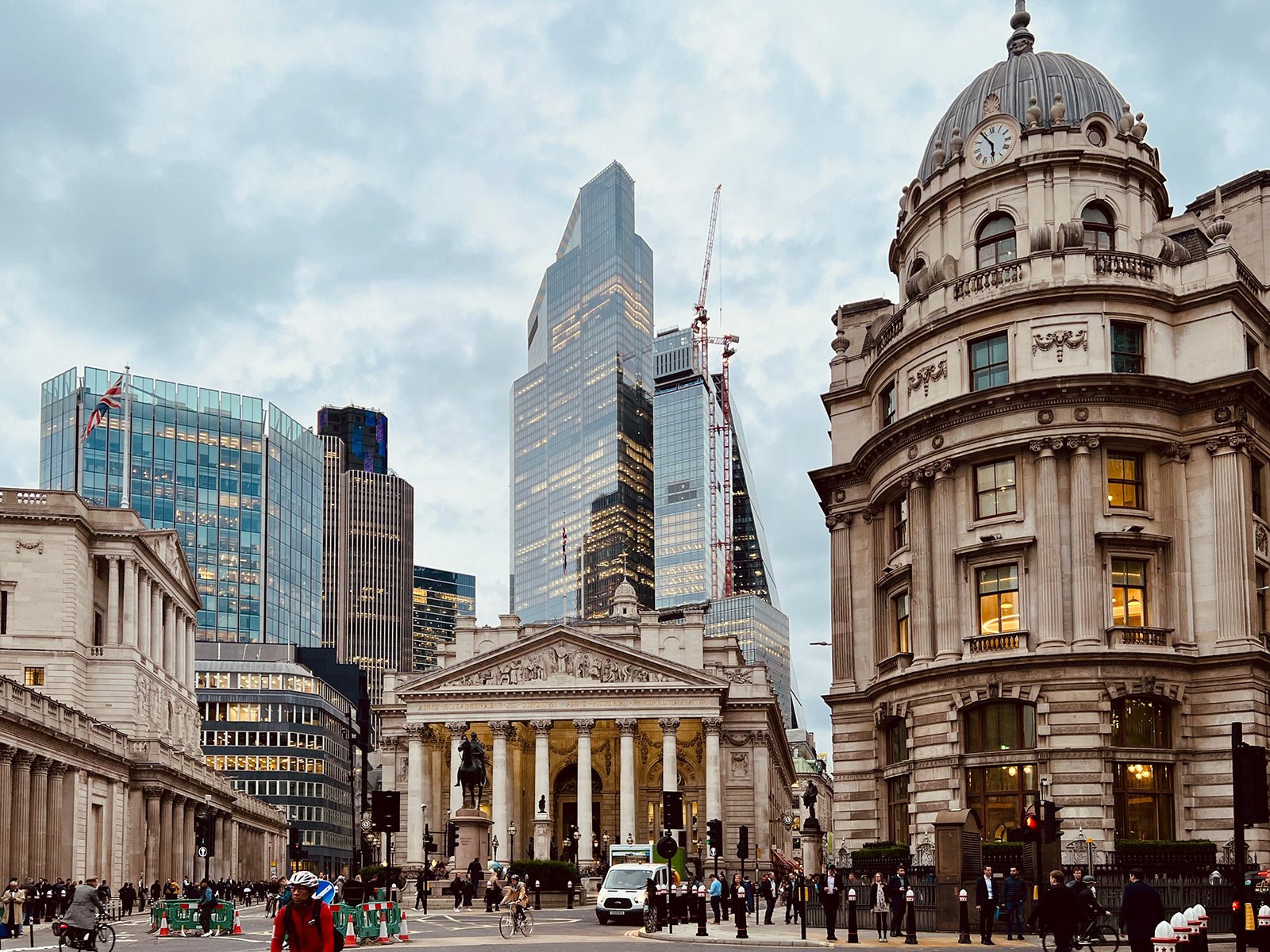
Overview
The Global Talent visa is designed for individuals within the realms of science, art, culture, and digital technology.
The visa grants permission for legal residency and work in the UK for up to five years, with the option to extend, apply for permanent residency, and later, citizenship. It also permits bringing along your partner and children.
Self-processing the visa can cost approximately £3000 per individual. I went through this process independently and will elaborate on the breakdown below.
Upon completion, you receive a Biometric Residence Permit (BRP) card. This internal document enables activities like opening a bank account or obtaining a tax identification number.
The process took me five months, from discovering this visa type to gathering documents and acquiring the BRP. I’ll outline a detailed timeline below.
Differences from a standard Work Visa
When considering a work permit in another country, the typical option that comes to mind is a work visa. In the UK, this is termed the Skilled Worker visa.
In theory, obtaining a Skilled Worker visa is easier because most of the bureaucracy rests on the employer. You can apply for a job from abroad, undergo an interview, and secure an invitation to work, along with your relocation to the UK.
However, there are nuances:
- Not every company or profession qualifies for this visa. The government website maintains a register of approved companies and a list of professions; if yours isn’t listed, you’re out of luck.
- Even if a company is on the approved register, they might not be interested in hiring a foreign worker like you. Various reasons exist for this, ranging from increased costs in hiring non-local specialists to internal restrictions. I encountered this scenario personally. Despite 12 years of experience and a stellar reputation with the company, I couldn’t secure a position in their UK office due to internal regulations. This situation led me to explore other options, and fortunately, I discovered the Global Talent visa.
- The Skilled Worker visa ties you to an employer. Switching jobs means leaving the UK and starting anew. If your company struggles and you’re laid off, you’re also required to leave. Overall, this visa provides limited or no social security, a major drawback for me as a family person.
- You must undergo an English test, provide income proof, and maintain a minimum amount of money in your account for the Skilled Worker visa.
In contrast, the Global Talent visa requires proof of your talent but offers extensive flexibility. You can opt to work or not, switch jobs without constraints, freelance, or establish your own business – all without the requirement to demonstrate proficiency in English or meet specific income criteria.
As far as I know, the Global Talent visa has only two restrictions: you cannot work as a doctor or a professional sportsman, and you cannot claim public funds, such as benefits or pensions. Apart from these limitations, you have the freedom to live and work as you prefer on this visa.
Preparation and categories
When you peruse the general descriptions and prerequisites for this visa, you’ll come across terms like “exceptional talent” and “acknowledged leader.” Somewhere in the mix, there’s a mention of “If you have Oscars or Grammy awards, click here.” Initially, it might seem a bit daunting. You might think, “Well, that’s a bit extreme! I don’t have any of that. Looks like this visa isn’t for me.”
The key to getting ready mentally is not to feel intimidated or misled. You don’t need to be a global star. Any level of success in your field might just be enough. From my experience, this visa isn’t primarily about inherent talent; it’s more about your willingness, determination, and your ability to meet the criteria.
From my experience, this visa isn’t primarily about inherent talent; it’s more about your willingness, determination, and your ability to meet the criteria
The Global Talent visa comes in two categories: Exceptional Promise (for those who show promise) and Exceptional Talent (for recognised leaders).
The key difference between these categories is that achieving indefinite leave to remain takes at least 5 years under Exceptional Promise, while Exceptional Talent requires only 3 years. Clearly, Exceptional Talent is the preferred choice.
The decision of which category to apply for is yours to make. However, it’s crucial to note that if you apply for Exceptional Talent and fall short of the recognised leader criteria, you may still qualify for Exceptional Promise. On the other hand, applying for Exceptional Promise might restrict your eligibility only to that category. So, my advice is to always opt for Exceptional Talent, even if you’re uncertain about meeting all the stringent requirements.
Stages and costs
The visa process globally comprises two primary stages referred to as Stage 1 and Stage 2 in official documentation.
Stage 1 involves obtaining approval from a cultural institution. Normally, immigration officials, who typically deal with formalities like border crossings, income, employment, and criminal records, might not possess the expertise to determine your talent in the cultural or scientific field. Therefore, they redirect you to the relevant organisations that are better equipped to assess your credentials.
The cultural institution you approach for approval depends on your area of work. This step, known as endorsement, is the most critical and often the most challenging.
The visa fee totals £623, divided into two components: £456 for the endorsement application and £167 for the visa application. For Stage 1, you’ll need to pay the initial £456 online from anywhere globally. Unfortunately, if your endorsement isn’t approved, the payment is non-refundable. You can reapply by paying the same amount again.
Stage 2 involves applying at the visa application centre once you secure the endorsement. This necessitates physically submitting the required documents to the specified address. If it’s your first time obtaining the visa rather than renewing an existing one, you must apply outside the UK. This phase is primarily a formality, and it’s almost certain that your visa will be granted.
According to regulations, you’re eligible to apply from any country where you have permission to stay for a minimum of 6 months. However, there are cases of successful applications from countries where legal residence is less than this duration. If this detail is crucial for you, I suggest delving deeper into this aspect. I haven’t encountered this situation personally as I applied from Israel.
During this phase, you’ll need to settle the remaining £167 for the visa and, notably, £624 for health insurance (Immigration Health Surcharge) per year per individual, which can be quite a hefty sum. For children under 18, the amount is slightly reduced at £470 annually. Additionally, there’s an additional £55 fee for the visa centre.
Total cost:
| Service | Promise (5 years) | Talent (3 years) |
| Visa | £623 | £623 |
| IHS | £3120 | £1872 |
| Fee | £55 | £55 |
| Total: | £3798 | £2550 |
You’re not obliged to apply for the full visa period in a single application. You have the flexibility to select a duration between 1 to 5 years. For instance, if the immediate payment for insurance is challenging, opting for a shorter term is feasible. Yet, it’s worth noting that extending the visa later will incur an additional £623 fee. Hence, making a one-time payment for the entire term is the most cost-effective option.
Here’s an overview of the process and its associated costs. Now, let’s delve into the specifics.
Choosing the field of work
Before diving into document collection, it’s crucial to decide on the specific field you’ll be applying under. As mentioned earlier, various endorsing organisations correspond to distinct fields, each with its unique application requisites and nuances.
Here are the available options:
| Academia or research | Science; medicine; engineering; humanities |
| Arts and culture | Combined arts, dance, literature, music, theatre or visual arts; architecture; fashion design; film and television |
| Digital technology | Financial technology; gaming; cyber security; artificial intelligence |
I applied under the following category: Arts and Culture → Combined Arts, Dance, Literature, Music, Theatre, or Visual Arts → Music → Performing DJ, Music Producer, Curator, Events Promoter.
The endorsing body for my field is Arts Council England. It’s important to note that all my experiences pertain specifically to this organisation, considering my application falls under this category. If you’re applying in another field, ensure you thoroughly research their individual requirements.
A full list of requirements as well as the specific disciplines in which to apply in arts and culture is available in the official guide from Arts Council England. Be sure to download and study this document carefully.
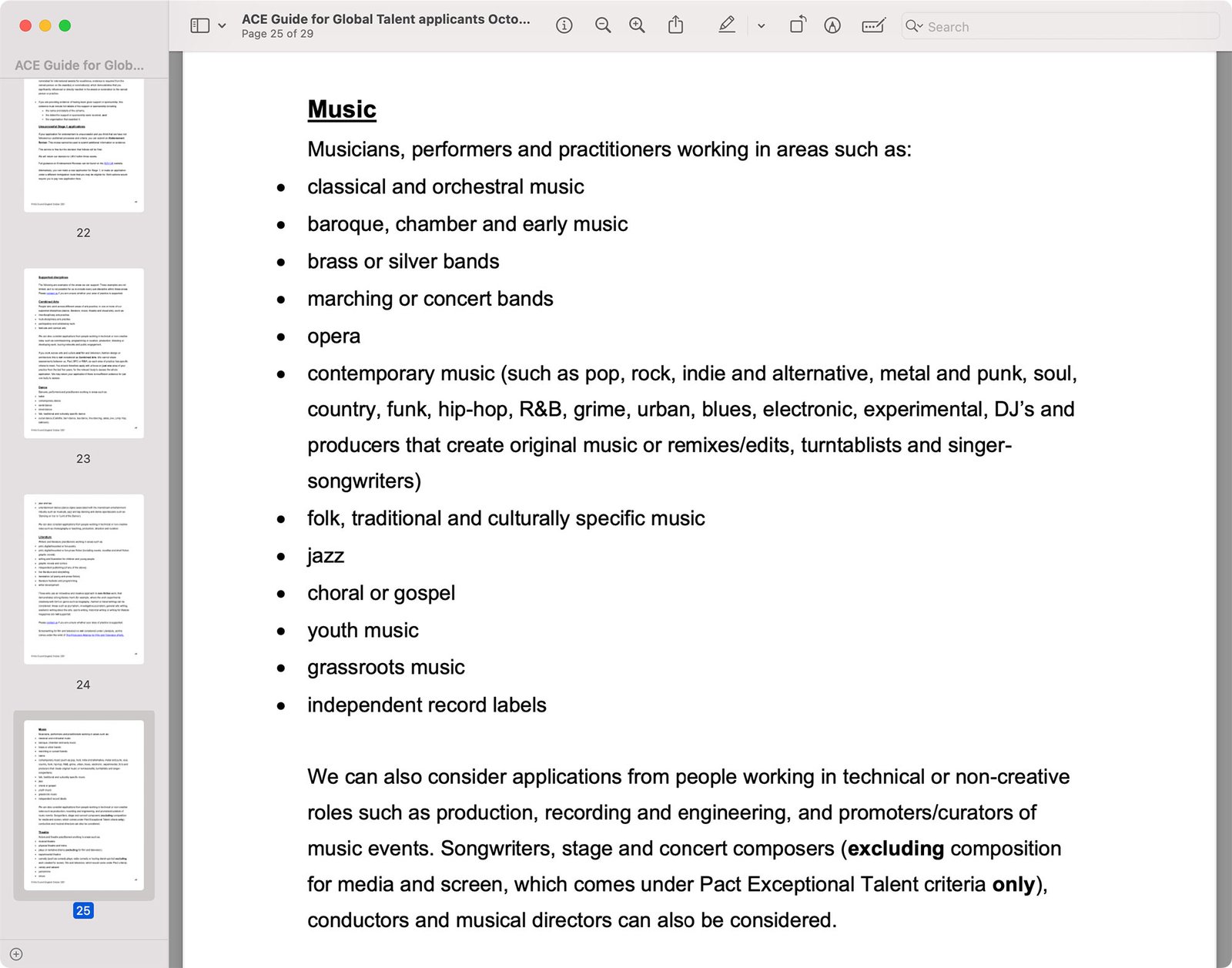
Stage 1: Endorsement
To apply for endorsement, you need to provide 13 documents :
3 letters of support from organisations with international professional recognition with whom you have previously worked.
The letters should describe how you met, the things you have done together, your achievements and how they think you can enrich the cultural life of the UK. The latter is particularly important: not what the UK is good for you, but what you can do for it. It is very important here to outline what specific plans you have for the country in the short term.
The first letter must be from a UK organisation. The second letter can be from any international organisation. The third letter can be from either an organisation or an individual who is also a well-respected expert in your field.
Each letter should contain the company’s logo, full legal address, date, signature, and a brief company profile or author’s biography to ensure clear identification. Only senior executives may sign these letters.
Pro Tip: Provide a draft when requesting recommendations, making it easier for them to adjust details and sign off, significantly enhancing your chances of securing it.
10 supporting evidence of your professional activities. These should fall into at least two of the following categories:
- Media recognition: independent reviews, critiques, or evaluations of your work via articles on websites or magazines. While interviews are acceptable, they are less desirable.
- International awards: any awards or nominations that highlight your work’s quality.
- Proof of appearance: any professional activities relevant to your application.
There should be at least two media coverage. Other than that, it is up to you to decide on the proportion of these documents, as long as they do not exceed ten in total. For example, you could have three media recognitions, five awards and two appearances. Or whatever else you like.
Each document should focus on one event or article and not exceed two A4 pages. Roughly speaking, you cannot name a document “All my performances abroad” and fit all your tours into it.
Two important points to note:
- All evidence must be no more than five years old. Showing an award you received six years ago, unfortunately, is not possible.
- You can’t use blogs or social media. If the poster of your most important performance is only posted on Facebook, it won’t count as evidence, sadly. Only websites or magazines.
Be prepared for those handling endorsements to Google your name. Ensure that your online presence displays relevant and reputable content. This holds true for the companies providing recommendation letters.
There are no special rules about the layout of the documents – do as you like. There is only one requirement, though: if you show a screenshot of the website as evidence, save the page through the print version so that the date and the link to the source are automatically inserted in the footers.
I can show you one of my evidence as an example, as there’s no confidentiality concern:
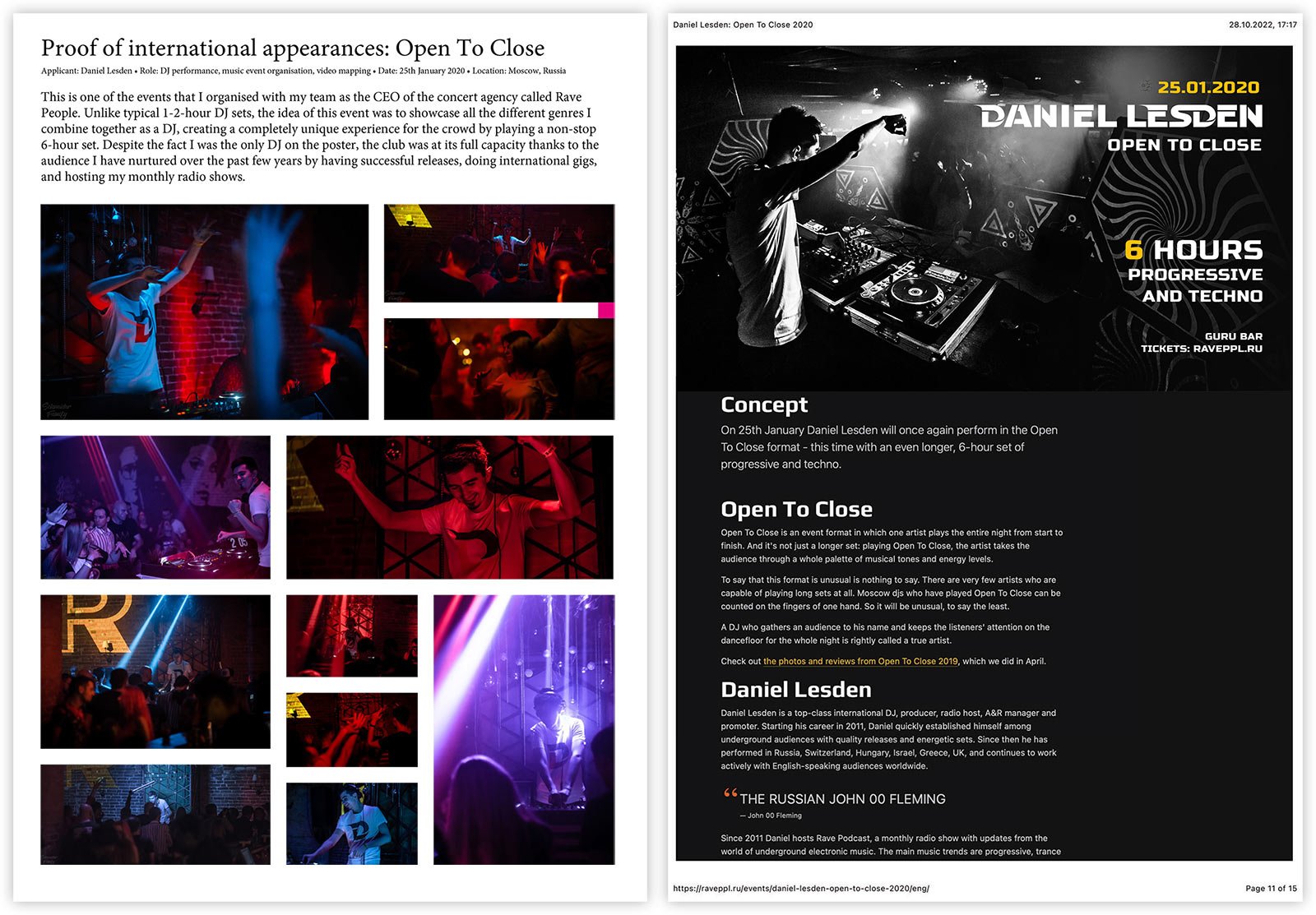
Please note, the document showcases my stage name, Daniel Lesden, rather than my real name. This is fine: during the application, you can present various versions of your first name (including transliteration, maiden name, etc.) alongside your stage name.
You might wonder, ‘What if I lack an award, media mention, or any other necessary document?’ This, indeed, constitutes the primary challenge of the visa! Remember the emphasis on determination I highlighted earlier? Write, search, network, inquire. There’s no one-size-fits-all solution, but I firmly believe that any hurdle can be overcome.
Once all the documents are gathered, you can proceed to apply for endorsement through the Global Talent Endorsement page. You’ll be required to complete a comprehensive application form and pay the initial portion of the visa fee. Once you’ve gone through these steps, you’ll receive a crucial precious address to which you must submit all the documents. Attachments should not exceed a total size of 25 MB.
Here’s the composition of the final list of 13 documents I submitted to Arts Council England:
- Evidence 1. Media recognition
- Evidence 2. Media recognition
- Evidence 3. Media recognition
- Evidence 4. International award
- Evidence 5. Proof of appearances
- Evidence 6. Proof of appearances
- Evidence 7. Proof of appearances
- Evidence 8. Proof of appearances
- Evidence 9. Proof of appearances
- Evidence 10. Proof of appearances
- Letter 1 (UK)
- Letter 2 (USA)
- Letter 3 (UK)
The entire process of understanding the requirements and gathering documents took me a little over a month. I imagine this timeline can differ significantly for each individual: the more tangible accomplishments you have, the smoother the document preparation, and conversely.
After dispatching the documents, all that remains is to wait. Speaking from experience, it’s quite an emotionally charged period.
I got a decision after three weeks:
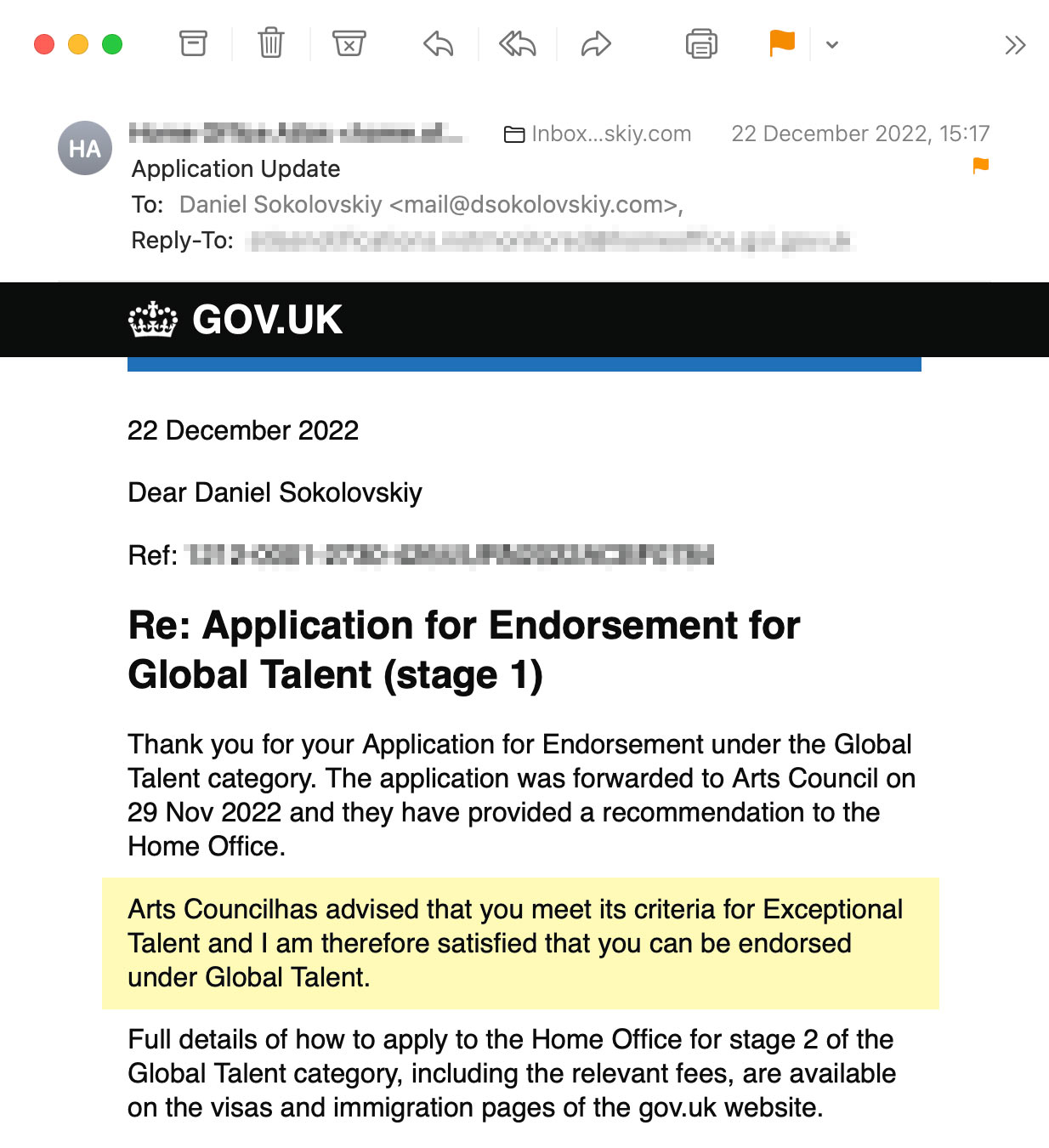
From this point, the clock starts ticking: the endorsement remains valid for 3 months. If you don’t proceed with the second stage within this timeframe, the endorsement will expire, requiring you to begin the process again.
Step 2: visa application centre
If you were in the UK as a tourist during your stage 1 application, as I was while in London, you’ll need to depart the country. The second stage must be applied for outside the UK.
During this stage, you aim to secure an appointment at the visa application centre. At the appointed time, you’ll submit your documents there. Similar to the prior step, you’ll need to complete an extensive application form and make the insurance payment at the end.
Following the payment, you’ll have the chance to schedule an appointment on the visa application centre’s website. At this point, there are two entry methods: self-service and assisted service. The distinction lies in self-service, where you independently upload your documents online, while assisted service involves bringing copies of your documents to the visa centre for scanning and online uploading. I opted for the first option as it appeared more convenient for me.
Here are the documents I uploaded online:
- Scans of all the passports I listed on the application form
- Endorsement email
It’s important to note that, in addition to these documents, a tuberculosis certificate is required, and this can be a bit tricky. The test is mandatory for those who have in these countries resided in specific countries within the last six months, including Russia but excluding Israel. The test must be conducted at UK-approved certified clinics. When I scheduled my appointment at the visa centre, there were no such clinics in Israel, as residents there aren’t typically required to undergo this test. This presented a challenge as I couldn’t physically take the test there.
I must highlight that this was a point of contention; they were not pleased with this situation, and I was instructed to send them the certificate anyway. Interestingly, around the same time, the UK website suddenly listed Israel as one of the certified clinics! Regardless, I eventually managed to obtain the required test, and fortunately, everything was alright. Nevertheless, it was a stressful experience, so I strongly advise taking care of the certificate beforehand, ensuring it’s completed wherever it’s feasible.
After your appointment, you’ll receive a checklist outlining the required documents for your appointment. However, there might be a section that might initially give you a scare:
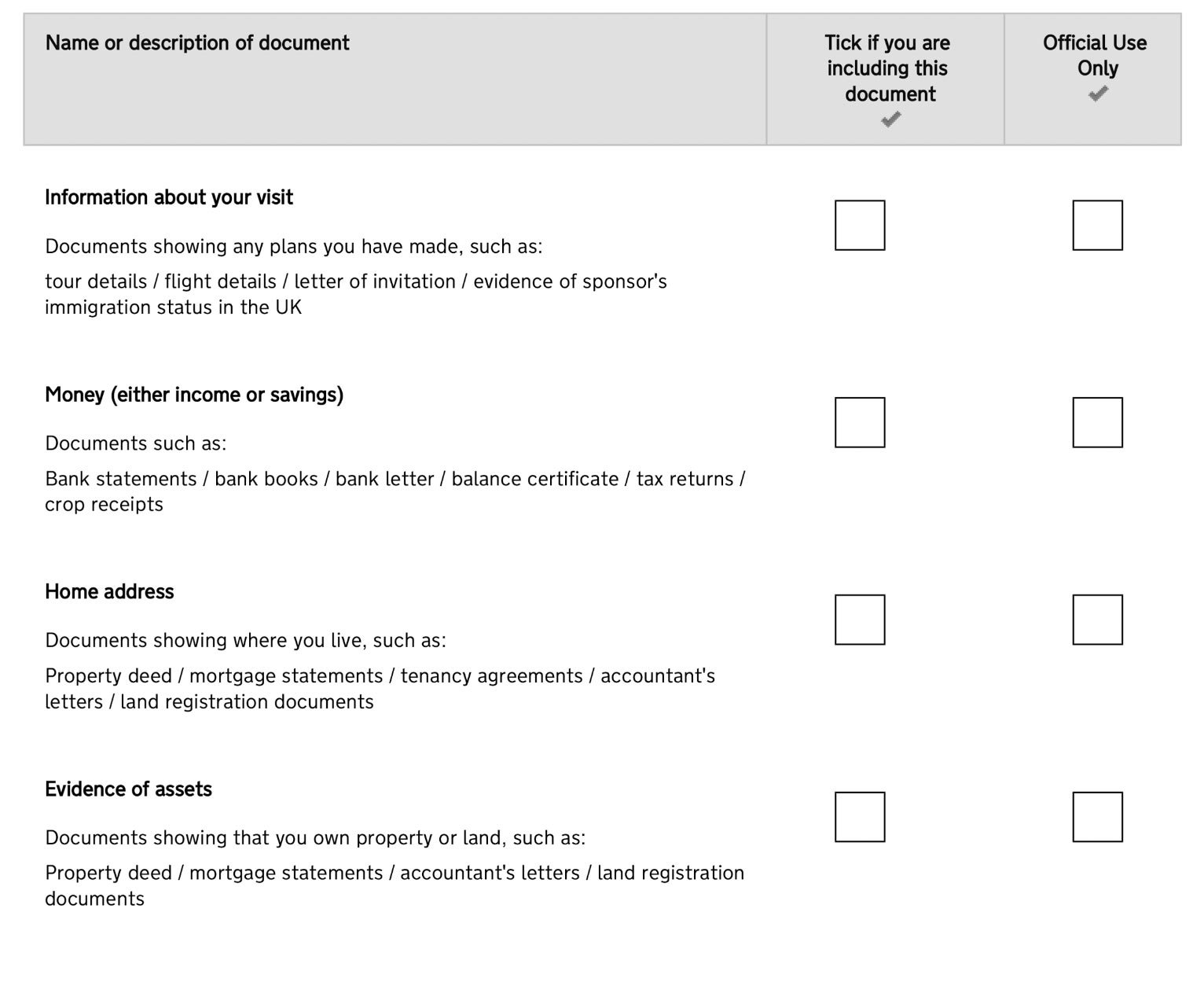
“Visit information, savings, real estate”.... er, what? Aparentely, this is a part of a general checklist applicable to various visa types, including regular tourist visas, and doesn’t pertain to the specifics of the Global Talent visa. Phew!
In the end, I only needed the first sheet of the printed application form and my passport at the reception at the visa centre.
Bear in mind that your passport will be taken from you while you wait for your visa, which can take up to 8 weeks. If you want to keep your passport with you, you can use the Keep My Passport service for a fee. This service costs an additional £55 and is only available online, before your visit. This service is not available at some visa centres.
Then the procedure is the following: your passport is sent to the Decision Making Centre, a vignette is stamped in it, then they return your passport, and then you can fly to the UK with it.
Exactly 15 days after the visit, I received this email from the Decision Centre:
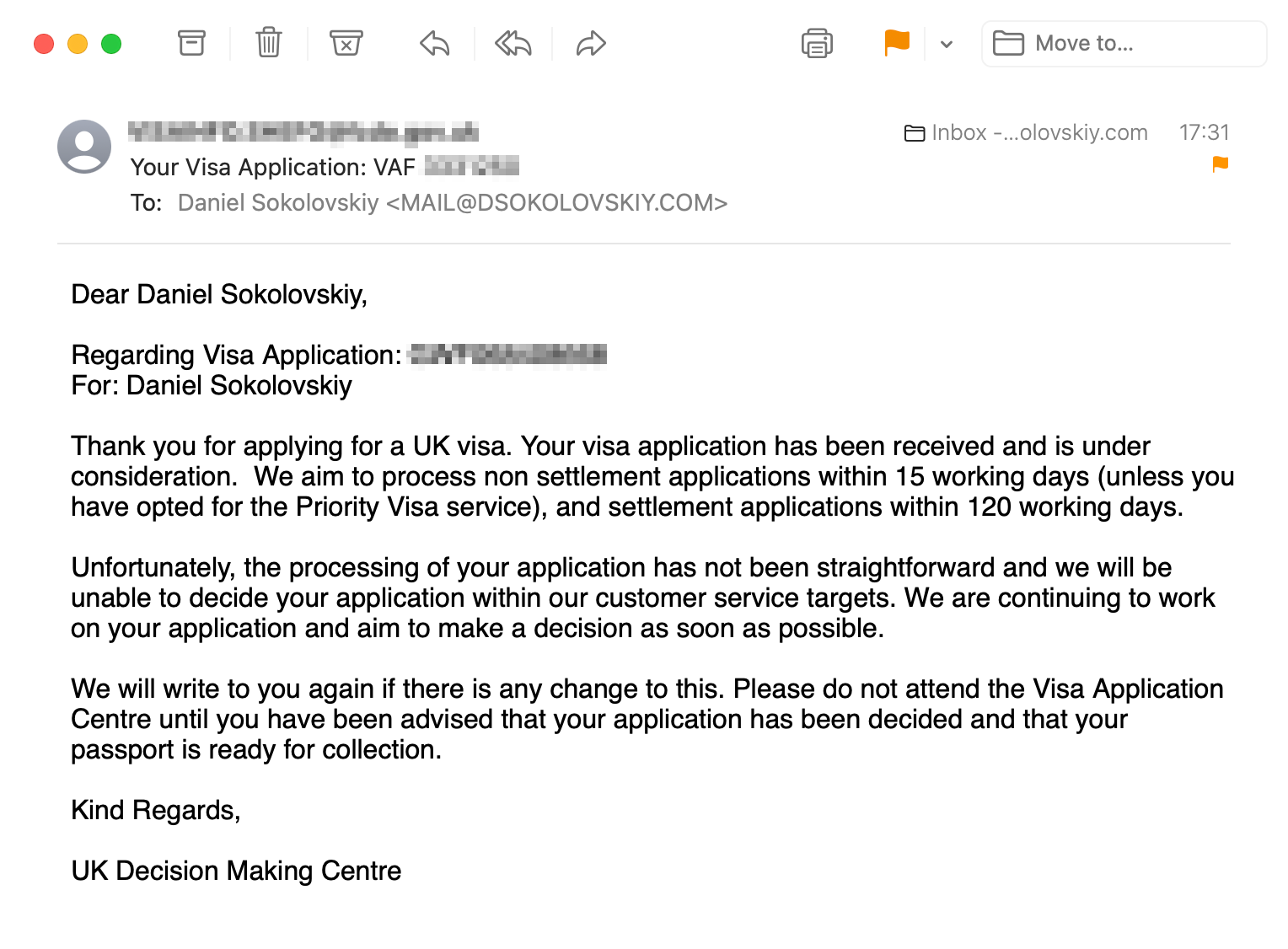
This email might appear alarming, particularly with phrases like “unfortunately” and “120 working days.” However, it’s a standard automated email expressing regret for not meeting the ideal 15-day processing time. So, if you receive this email, don’t panic – it’s a routine message.
My passport was returned after 8 weeks and 5 days, delivered by a DHL courier.
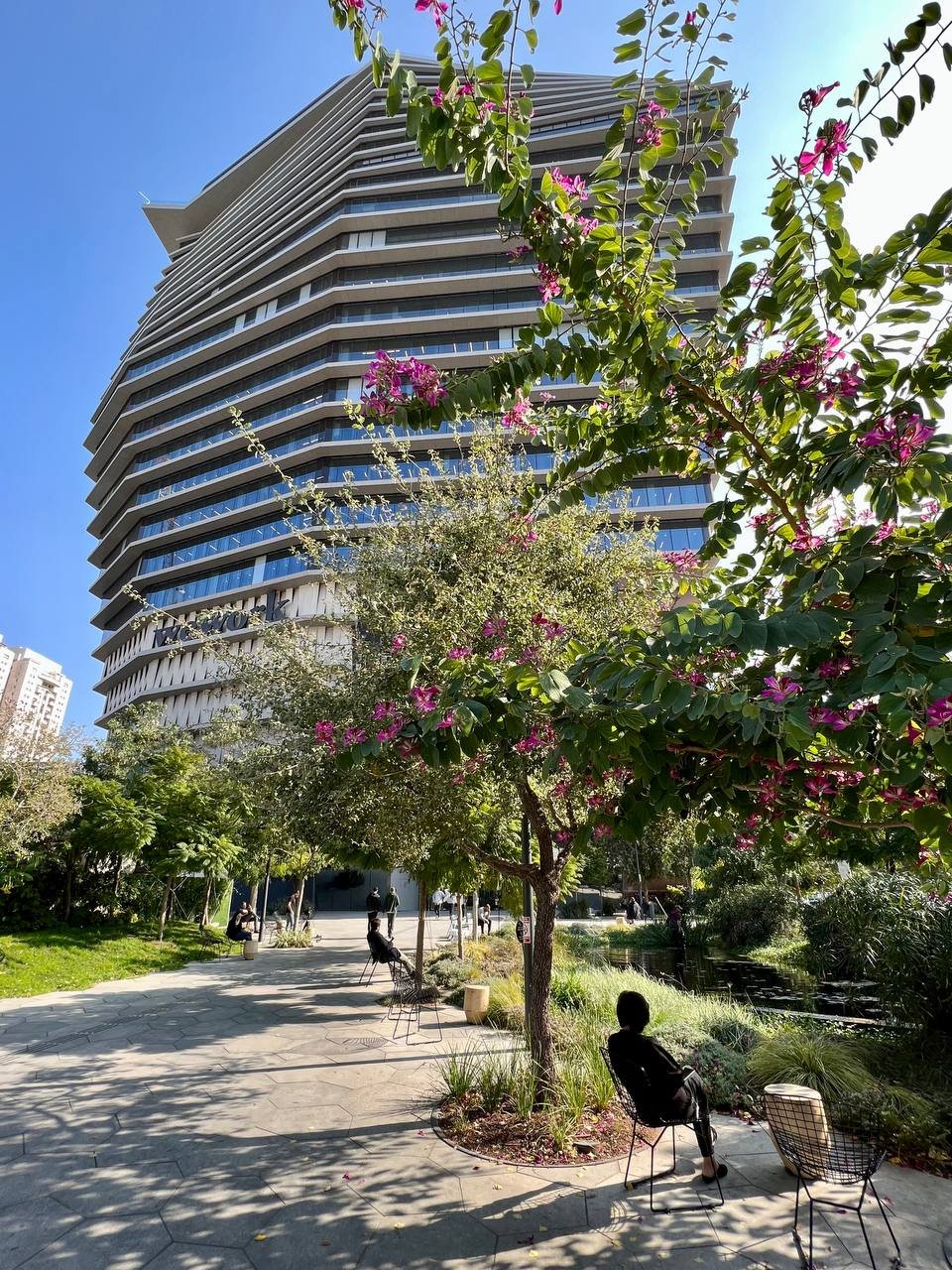
By now, your Biometric Residence Permit (BRP) should be awaiting collection at the designated post office in the UK, as indicated on your application form.
This marks the start of your life as a resident in the UK, with new challenges like finding a place to stay and setting up a bank account ahead of you. It’s a whole new adventure!
Timeline
Here’s the final timeline in my case:
| 13 Oct 2022 | First heard about Global Talent visa |
| 28 Oct 2022 | Applied for endorsement |
| 22 Dec 2022 | Received the endorsement |
| 23 Dec 2022 | Applied for the visa |
| 3 Jan 2023 | Went to the visa centre |
| 23 Feb 2023 | Got an email that I must send a TB certificate |
| 27 Feb 2023 | Sent the TB certificate |
| 1 Mar 2023 | Got an email my passport had been dispatched for delivery |
| 5 Mar 2023 | Received passport with visa stamped on it |
Family
As previously mentioned, the Global Talent visa also allows you to bring your partner and children:
- Spouse or civil partner
- Unmarried partner
- Children under 18
They hold a special status as ‘dependants,’ meaning they rely on and are linked to your visa. If you choose not to renew your visa or leave the UK, they must also depart. However, they are permitted to legally live and work throughout the visa’s duration, similar to the main talent visa holder.
Dependants do not require endorsement, yet they are responsible for the full visa and insurance costs—matching the main talent visa expenses: £623 for the visa and £624 per year for insurance. For children under 18, insurance costs slightly less at £470 annually.
Interestingly, dependants can apply without waiting for the main talent visa’s approval. Although it may seem illogical, there’s no explicit rule preventing dependant applications before the main visa decision is made.
Indefinite leave to remain
The visa marks the start of the journey, not the destination. I’ve delved into what comes next, but it’s all theoretical, so it’s best taken with a pinch of salt.
After spending a few years on your visa, you might qualify to apply for permanent residence, known as Indefinite Leave to Remain (ILR). ILR allows you to live in the UK without time restrictions and access social security benefits.
gov.uk/indefinite-leave-to-remain
For Exceptional Promise category holders, the minimum qualifying time for ILR is five years, while for Exceptional Talent, it’s three years. However, this differs for dependants. They can only apply for ILR after five years, even if the main talent qualifies for Exceptional Talent and could apply after three years.
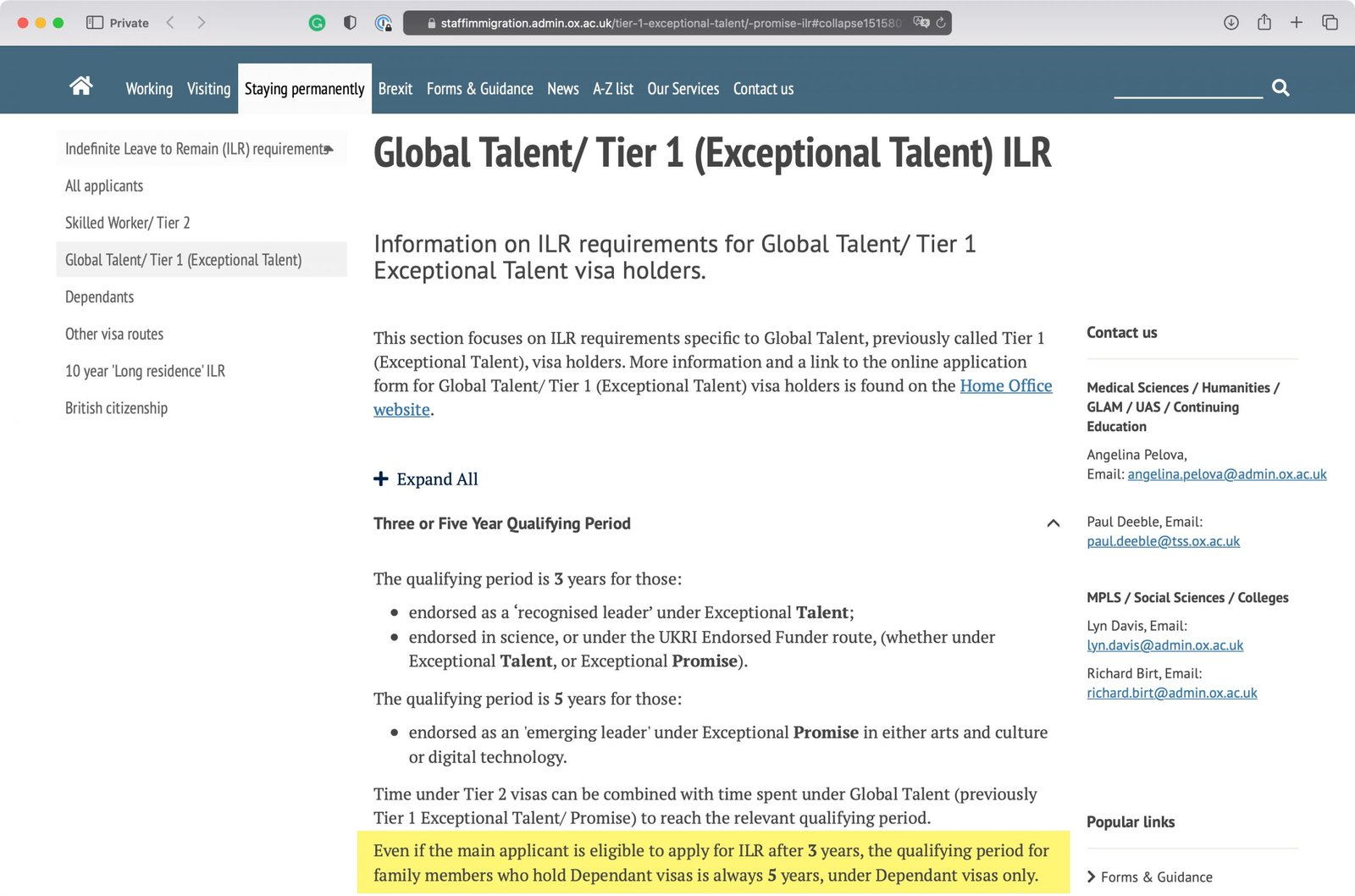
This rule seemed puzzling to me and doesn’t quite add up. In essence, it means that regardless of the Global Talent visa category, your dependants will end up paying for the full five years of insurance.
To secure ILR, it’s necessary to demonstrate income derived from the professional field related to your visa. I’m still in the process of figuring out the exact income requirements, but it seems employment documents, receipts, and three months’ worth of bank statements are considered suitable evidence.
Additionally, meeting the ILR criteria involves spending no more than 180 days outside the country per year and passing language and UK life tests.
Unlike the visa, a permanent residence permit doesn’t have an expiration, but staying outside the UK for over two years can lead to its revocation.
The application cost for ILR stands at £2404.
Citizenship
The final milestone of this journey is citizenship. Eligibility for citizenship comes after residing in the UK for five years, including at least one year with ILR. It’s important to note that the actual time spent in the country matters, excluding time spent abroad.
gov.uk/apply-citizenship-indefinite-leave-to-remain
Upon completion, you’ll receive a blue passport adorned with the royal crest. This passport functions as both an internal BRP replacement document and an external travel document for international trips.
The UK allows dual citizenship, but the rules concerning three citizenships and any potential implications remain unclear to me.
Applying for citizenship costs £1330 for adults and £1012 for children. Additionally, if a child is born in the UK while both parents already hold indefinite leave to remain, they automatically gain citizenship.
⌘⌘⌘
I hope this post helps anyone going through the Global Talent application process. Thanks for giving it a read!
If you’ve got any questions while dealing with your Global Talent application, just drop them in the comments. I’ll try my best to help out.
I also want to express my heartfelt gratitude to everyone who supported me during this challenging period – it was undeniably the toughest time in my life, and your support meant everything.
Have you found this article useful?
If you found this information useful and practical for your immigration journey, please consider buying me a cup of coffee by supporting me on Patreon. While many consultant firms charge for thousands of dollars for the same amount of information, I’m sharing it all for free. I don’t monetise this blog in any way, so your direct support on Patreon would be greatly appreciated!
⌘⌘⌘
Please note: I’ve been receiving numerous emails with questions, but I want to clarify that I’m neither a lawyer nor an expert on this visa. This article shares my personal experience in obtaining it, so I can’t predict the success of your case. Unfortunately, I can’t share any other documents beyond what’s discussed in this article. If you have questions, please post them in the comments below, where others might also contribute helpful answers.
Best of luck!



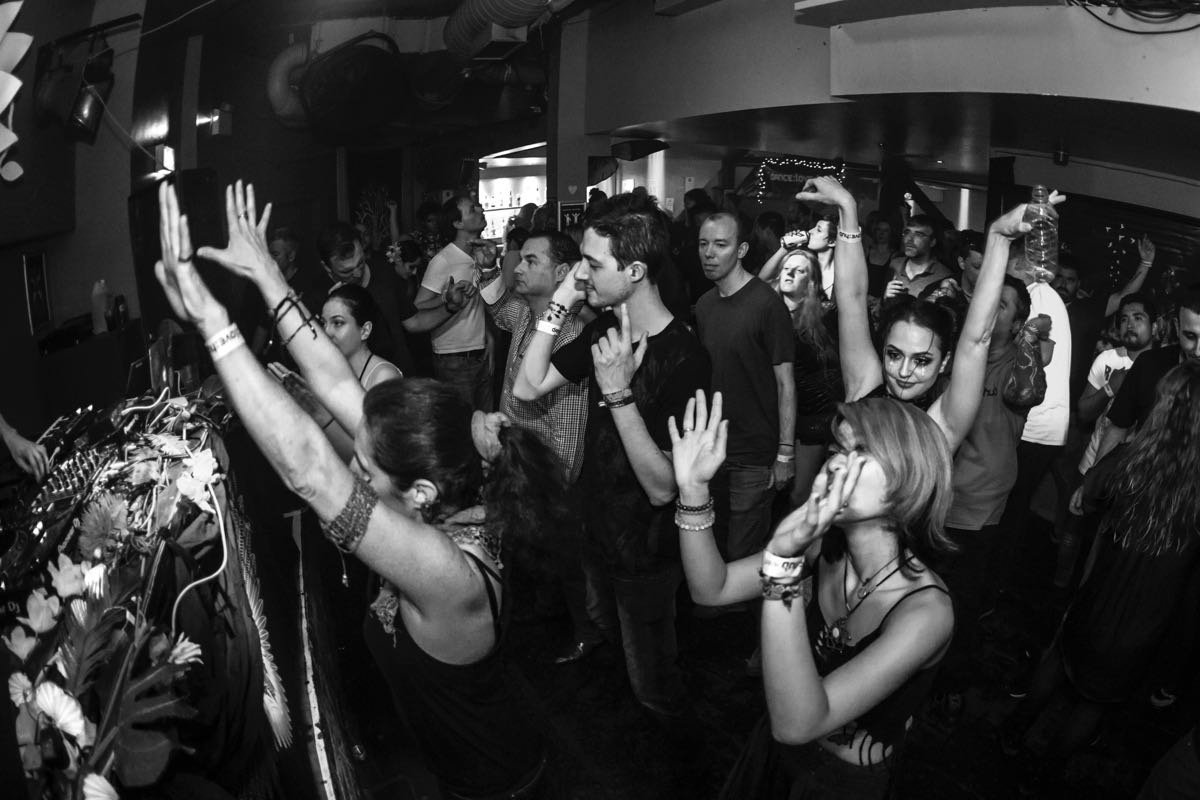

Hello! Thank you so much for writing this very honest and informative account of your experience with the GTV. I’m following it closely as I do my own application and wanted to ask you – did you pay for your dependants (partner and child) when you applied for the endorsement? Or did paying for them only come into account for the visas? Thank you soo much. Megan.
Hi Megan, I’m glad you find it informative!
No, the whole endorsement process (Stage 1, as they call it) is for the main talent only. I believe the Stage 1 application form has a question of whether you have some dependents, but that’s about it — you don’t pay anything for them yet.
Once you get your endorsement, then you can apply for Stage 2 together (but each must fill out their own application form).
I hope it helps, and good luck!
Thank you soo much, that is so helpful, Daniel. Really, if I end up getting this, my husband and I owe you a beer in London.
Thank you so much Daniel for this very informative page! This was exactly what I was looking for as I’ve been indecisive on which visa to apply for, this one or the youth mobility visa. Do we get taxed on this visa?
Good to hear, Karen! Yes, once you get the visa and move to the UK (and become a UK tax resident), you must pay tax on income, NHS, and other contributions, as most British.
Thank you so much for this
Pls can the dependants also pay the health surcharge on a yearly basis if one cannot afford to pay the 5 years at once for the global promise visa
Yes, dependants can pay the health surcharge from 1 year up to the main applicant’s visa duration, which is 3 or 5 years, depending on the visa route. But keep in mind that if you pay for one year at first and the next year you renew, you will have to pay the visa fee (£623) again on top of the health surcharge. So while it might be more affordable to pay yearly, it’s definitely cheaper overall if you pay the entire duration upfront.
Here is a quick maths:
Entire 5 years upfront:
Paying yearly:
= £6,237, and that’s assuming that the costs won’t go up, and most likely they will
Thank you Daniel.
You have been really helpful
Hi Daniel, I’m about to apply for this visa. I have a couple questions about the website requirements. I’m not seeing anywhere in the Arts Council requirements about the footers being necessary...do you know where you saw that? I’m also seeing in the Arts Council guidelines that a screenshot of the entire webpage is required...which is insane because then you can’t actually read anything. Any insight there?
Arts Council England guide, page 6, at the bottom:
I hope it helps!
Hello daniel thanks for the piece of information. However could you please assist me with copies of your recommendation letters so it can serve as a guildline for the person I intend to write mine.please kindly send it to my email address egbunahuzoamaka12@gmail.com. Thanks you so much.
Hi Daniel! So what international award of yours did you show in your application? Did you have any? Thanks!
Thanks do much for this Daniel. Pls can u help me with a copy of your recomendation letter as a guide. My email is bimbofoke2@gmail.com
Thanks
Abimbola
Hi
Daniel thank you so much for this information please can I ask with the fashion designer
Do I need one
Media recognition
And industrial recognition my email is fashionbypatty@gmail.com
Just one each? Thank you
Wow. Thanks so much for this. I lived in the UK for four years for uni, six years ago, and I miss my friends over there desperately. I freelance in film so the Oscar point has always scared me off. I may yet try for this visa in a few years. The further I get in my career the more hopeful I am. I hope to be back in that amazing country soon. It’s so great to se a recount of the process from someone who’s not trying to get thousands of dollars to advise. Thanks truly for the free advice. Hope to see you from the dance floor sometime ✌️
Hello daniel , your piece was very enlightening , however please can you help send a template of what a recommendation letter is supposed to look like via this email ahmadams222@gmail.comm. i’ll be grateful if you can assist with this. many thanks
Thank you Daniel for taking the time to write this. It really provided a lot of information and allayed a lot of my fears. Could you send me a copy of the template of your recommendation letter via the email I used in signing here? It would be greatly appreciated.
Sorry, I can’t share my recommendation letters for privacy reasons. It’s one of those things that must be uniquely yours, as it should describe your connection to the recommender (a person or a company who recommends you), alongside how your contribution can potentially enrich the cultural life of the UK. In terms of the visual look/template, my letters were simple PDF files with some text and the recommender’s signature, so nothing fancy.
Dear Daniel
Many thanks for providing A-Zs of global talent visa in simplest way. You removed many question marks from my mind!!
can you send me a sample of recommendation letter? my email address is: kamran.mahmoodian@gmail.com
Thanks
I understand. Thank you
Hello,thanks for good history
I’m sculptor and I don’t know how can I get recommendation letter from uk organization (art)?do you know?
Daniel! Would u happen to know per
Arts and Culture
Proof of Performance-can I list different sites for the very same show?
(I performed the lead role in the same show performed over 5 years)
if my name is listed, but I am part of a group-so I need a support letter(not one of the 3 main letters)
but a support letter, or is my name being listed enough?
Hi Andrea,
No, each piece of evidence must be about a different event. Those events also must be from within no more than five years of the date of application.
If you a part of a group, then along with the event evidence you must include a supporting letter from the
individual you worked with, or from a senior person that has responsibility for the group you worked with.
All that information is available in the Arts and Culture guide I provided in the post, so I highly recommend studying it carefully.
Good luck!
Dear Daniel Sokolovskiy,
I am interior architect and designer Tuncay Ince. I am making preparations for my application to the Arts Council England within the scope of ‘Global Talent Visa UK’.
I found the answers to some of my questions about Global Talent Visa in this blog post. Thank you very much for explaining the process perfectly without making it complicated.
*I want to ask a question about letters of support.
It is stated on page 5 of the “Guide for GTV UK Applicants” booklet that letters of support must be received from cultural organisation.
In line with the expression here, can firms or companies operating in the field of architecture, interior architecture, art and design potentially be considered a cultural organisation, depending on their nature, reputation and expertise? Because I have collaborated with many nationally/internationally reputable firms or companies working in the fields of architecture, interior architecture and art, which are within my field of expertise, and I continue to do so. For this reason, would it be the right approach to receive letters of support from such companies?
Or are the cultural institutions mentioned here institutions with more formal representation mechanisms, such as professional chambers (chamber of architects or interior designers), art or design foundations, associations, unions?
(I emailed Arts Council England about the issue and they gave this response: “We cannot tell you which organisations you should be going to for letters of support as it is down to applicants to submit evidence they believe best meets the criteria. Our assessment team for endorsement will use their own expertise and use other research sources to confirm if the evidences you attach meet the criteria.”)
I would be very happy if you could give your valuable evaluation on the subject.
Regards,
From my experience, recommendation letters can be from any organisation in your field, as long as it’s renowned and credible. I hope it helps!
Dear Sokolovskiy,
Thank you very much for your valuable answer. I think I’m at the final stage of my application. I will complete my minor deficiencies and general checks and submit my application within this month. I hope I get the result I want.
Thank you very much for your interest and support.
Good luck!
Dear Daniel Sokolovskiy,
Sorry to bother you again. Because you are the only one who shares extensive knowledge and experience for Global Talent Visa. For this reason, I would like to thank you again and ask my question.
In the statement under the “Preparation and categories” heading on your blog, you mentioned that it is advantageous to apply in the Exceptional Talent category. You stated that if the application does not meet the Exceptional Talent criteria, it will be considered as an Exceptional Promise. When I read the “Guide for GTV Applicants” and “GlobaL Talent Visa FAQs and Useful Information” documents, I could not find such information. Can you share a source where I can confirm this information? Or does this question I mentioned vary depending on the field of study we apply for (such as music, architecture, fashion design)?
Thank you very much again for your interest and support.
Regards,
I couldn’t find this information in the official documents either, but many of such cases have been confirmed by other people I know who applied for a Global Talent visa.
Hi Daniel,
Please I want to ask you
After the first stage when applying for the second stage that is the visa
Do I need to add
Any bank statement ?
And also when uploading the application form and the endorsement letter do I need to add the tuberculosis form together?
With your Dj category for applying did you add any of your social media handle
Or just your media recognition?
Thank you
Hi Patty, you don’t need to add a bank statement, as Global Talent doesn’t require any proof of income.
For the tuberculosis test, yes, you need to upload it along with the endorsement letter and other documents during the Stage 2 application process.
As for the social media handles, I don’t think I mentioned it anywhere in the application at all.
Hi Daniel,
Thank you for providing your guidance on the Global Talent Visa.
I’m currently in the process of putting my application together and your guide has been so resourceful.
I’m not sure if I’ve let the Imposter Syndrome get to me but the criteria for Exceptional Talent is so much more than Exceptional Promise. I’m having cold feet applying under the Exceptional Talent- do you know of anyone who applied under this category and was rejected? There’s an additional CV requirement now which helps assesss the stage of career
Also, Please would you be able to guide me in the way of an example of how to present how to present proof of appearances if I was involved as a freelance spatial designer in celebratory work (event design). Do you reckon it requires a supporting document from my creative director stat
ing my contribution?
Thank you in advance for your help x
I know this feeling very well! Yes, I heard of people whose applications were rejected, but it was mostly due to the lack of clarity around their evidence. As long as you can provide all the required pieces, you should be alright!
Unfortunately, I’m not able to consult or guide you through the process. My proof of appearance was pretty simple in terms of the presentation, a PDF file (one for each event) with a paragraph of text and some pictures, you can see one of such examples in the article.
Hi, thanks for your post.
Under global talent let’s say I am appying under Digital technology category and post the endorsement and visa processing. Can I go an search job let’s say in Consulting/Management related jobs?
Pls advise
Yes, the Global Talent visa has no work restriction on that matter, with the only exception of sportsmen.
However, if further down the line you decide to apply for ILR, you will have to provide proof of income in the area of your visa, i.e. in ‘digital technology’ (if you applied in that category).
I hope it helps!
Hi Daniel, thanks a lot for sharing all these precious insights. I’m currently preparing all these documents to apply in a few days. I’m in the same field as you, been DJing for 10 years or so. I was wondering if it’s possible to apply for Exceptional Talent even if I didn’t get nominated for any awards. Would it be enough if I prove international appearances and media coverage for my projects in the last 5 years ?
Also I wanted to know, if I go to UK with a tourist visa before and apply from there for stage 1, then come back to my country to apply for stage 2 during a scheduled meeting there. Will I be able to come to UK on a tourist visa (with another european passport or the same passport if i pay for KeepMyPassport) while waiting for the decision ?
Thanks a lot for your time,
Cheers,
Francis
Hi fellow colleague, cool to see another DJ! 😃
As far as I know, providing an award as one of the pieces of evidence is a mandatory requirement for Exceptional Talent. There is no way around it. Keep in mind though that even being a nominee might be enough.
Once you apply for Stage 2, you must stay outside the UK during the whole process until you get your visa decision. If during this time you travel to the UK as a tourist, your visa application can be cancelled. This is a strict immigration rule, so I’d highly recommend planning your stay outside the UK in advance.
Good luck!
Hi Daniel,
Thank you for your help.
Another quick one: Do you think can apply for stage 2 of the application at the same time as stage 1?
Yes, you can. Quote: “You can apply for the Global Talent visa at the same time as you apply for endorsement, or after you have the endorsement confirmed.” (from this page on gov.uk). However, I’d wait until the endorsement is ready, at least that is what I did.
Thank you Daniel, I got nominated more than 5 years ago, unfortunately, so it would be better for me to do Exceptional Promise in this case even though I got some serious appearances in USA, Asia, Europe etc... I understand that I shouldn’t go with tourist visa if it’s so risky like this then. Thank you for the info again !
Thank you
Daniel
Hi Daniel,
In your post you say. “Once you’ve gone through these steps, you’ll receive a crucial precious address to which you must submit all the documents. Attachments should not exceed a total size of 25 MB.”
My question is: Is there a deadline as to when you need to submit these documents by? Like do they give you a window to email the documents to the address?
Hi Daniel, thank you for sharing your experience and the detailed info. It was really helpful and I got endorsed recently. Concerning the endorsement validity, I have paid the IHS and submitted visa application online but intend to go for biometeic at a much later date which by the time the 3 months endorsement validity would have passed. Do you think this coud be a problem? I was hoping to buy more time to plan my relocation. Or could that result to visa rejection by Home office?
Thanks
As far as I remember, only the endorsement is valid for 3 months, which means you must apply for the visa (Stage 2) within that period. Once you apply, there is no more such deadline of that sort, to my knowledge, so you can be flexible with your relocation date.
Hi Daniel, thank you so much for this explanation about how yours went, please I want to know if the award must actually be an international one, As a music Artist who has an entertainment blog I have won two awards as the best “blogger” in my county in my country and also last year I won an award for best “hip hop” artist, can the both awards be used as evidence for exceptional talent?
My second question is that I’m currently working as a skilled worker in the UK, if i succeed in getting my GTV will the days counting to my PR start on the day I got my GTV approved or from the day I came into the country as a skilled worker?
My third question is for the 3 letter of support I have a popular actor friend in my country, can he also write a letter for me even though he don’t have a company website?
Hi Cornelius,
Good luck!
Hi Daniel, thanks for your reply, wanted asking with all your evidence you submitted were you given the exceptional talent or exceptional promise?
Will having my bio in Wikipedia boost my opportunity to get it?
I was fortunate to get the Exceptional Talent category. I don’t know whether a Wiki page can help get any extra ‘points’, but I guess it won’t hurt to have one!
Hi Daniel. Thank you for this. I just want to ask if you think it’ll look sus if majority of your evidence is within the last 3 months and not spread over 5 years.
Hi Daniel,
Thank you for this piece.
Please, the second letter of support, must it come from UK based organisation? This is considering that every work I did was locally based? The award too, it must be international? Must the international award come from the ones they listed?
Hello bro thanks so much for your explanation, please I’d be glad if you answer these questions for me cause I’m about to apply.
Daniel good day, please which address for arts and council should the letter of support be addressed to in the letter?
The way people talk here sometimes because you have fall into some people you called recovery experts, I don’t blame you because you have meet the right person. I can stand and boost of this guy I met. {albertgonzalez@cryptorecwizard.com or albertgonzalezcryptorecoverywi@gmail.com} He tressed all the wallet addresses I sent my funds to and also recovered all my stolen founds from the scammers wallet address and send it to my personal wallet. His services are secured and 100% guaranteed. I’m still thinking what I would have done without the help of Albert Gonzalez. Contact him with the above information if you’re a victim of cryptocurrency scam. WhatsApp: +31 616251474 Or Whatassp: +31 647056874 Telegram: Albertgonzalezwizard
Lots of people that have been scammed on Bitcoin will always need a hacker to recover their Bitcoin from any investment scams. Most people out there will always find it hard to believe that you can recover back your stolen/lost funds. I was once among the non-believers because it never seemed to be true until it happened right before me. In my last experience with a fake online investment company, I invested the total amount of $387k worth of BTC in order to be in the company’s monthly payroll and make some interest, little did I know that I was dealing with a fraudulent company. When it was time for me to make my withdrawal, I was restricted from doing so even when I can still read my money from my dashboard. I got depressed about this and almost gave up on life. Due to frustration, I made contact with a private hacker (Albert Gonzalez Wizard) to see through the matter. To be honest, this frustration led me to my luck and he was able to help. I contacted him and after our conversation with him through WhatsApp: WhatsApp: +31 616251474 Or Whatassp: +31 647056874 Telegram: Albertgonzalezwizard, I gave him all the details he needed. After 48hrs of working, he successfully retrieved my lost funds with interest. This was my greatest surprise, he traced my funds to me from the scammers with just the details I provided. His company email: email: albertgonzalez@cryptorecwizard.com or albertgonzalezcryptorecoverywi@gmail.com